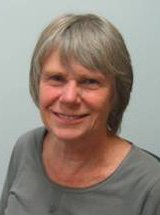Science funders need to keep on supporting “blue skies” research — fundamental work that may have no apparent immediate application to industry — says the first woman scientist to take home New Zealand’s most prestigious science medal, biochemist Professor Christine Winterbourn.

The Rutherford Medal — with a $100,000 cheque — was presented to Prof Winterbourn, from the University of Otago, Christchurch, for her outstanding achievements and discoveries in free radical biology which have established her as a leading-world authority in the field.
Noting that science was an exploration, Prof Winterbourn told guests at the awards ceremony in Wellington last night that it was important for funders of science to remember the importance of supporting fundamental research.
“This is not only because of the great discoveries that we can make — and we have made in New Zealand — but because this is also the ground for fostering the curiosity and the enthusiasm of young scientists,” she said.
On being the first woman to win the medal in its 20 year history, Prof Winterbourn said she had considered whether that was due to some form of discrimination:
“I don’t think it is — I think it’s really a matter of statistics: If you look at the people who have been awarded this medal, they all are pretty mature.
“If you think of the time when they started their careers, it was at times when women were very much in the minority (in science). When I did my degree in chemistry, we were four out some 30 people in the class.
Prof Winterbourn agreed with last year’s Rutherford Medal winner, molecular biologist Professor Warren Tate, that aspiring young scientists should follow their dreams, and added:
“I agree with Warren, but I would also say `follow your curiosity’. Science is an exploration … be curious and excited on a day-to-day basis. A lot of major advances have come when people are trying to satisfy their own curiosity and their own burning interest”.
“Science is unpredictable – you never know what direction it’s going to go. This is certainly true of research, but I think it is also true of careers. People often end up in a direction that they never anticipated at the start. I know a lot of young people agonise long and hard what do do but my advice is make the best decision you can at the time … and see what happens”.
(See video interviews with Prof Winterbourn and some other science winners, here)
Other honours presented included the top award for achievement in technology, the Pickering Medal and $15,000, was awarded to Professor David Ryan, Professor of Operations Research and Deputy Dean of Engineering, at University of Auckland for developing technology which is at the heart of optimisation software used worldwide for solving complex logistics problems, such as airline scheduling.
The Thomson Medal and $15,000 was awarded to Neville Jordan, for his outstanding contribution to leadership in the management of science leading to the development and application of science and technology to wealth generation through his management of MAS Technology Ltd, Endeavour Capital Ltd and his role as a director of numerous spin-out companies he has supported through the latter.
The inaugural Callaghan Medal for outstanding contribution to science communication was awarded to Professor Sir Peter Gluckman, chief science advisor to the Prime Minister for his achievement in science communication, in particular raising public awareness of the value of science to human progress.
The inaugural MacDiarmid Medal for outstanding scientific research that demonstrates the potential for application to human benefit, was awarded to Dr Gary Evans of Industrial Research Limited who has pioneered the design and synthesis of new pharmaceuticals for the treatment of major diseases including gout, psoriasis and cancer of the immune system.
The Hutton Medal for animal sciences was awarded to Professor Robert Poulin from the University of Otago for his leading research in the field of parasitic diseases, especially for his work in ecological parasitology.
The Hector Medal for mathematical and information sciences was awarded to Professor Rod Downey from Victoria University of Wellington for his influential and innovative work in mathematical logic.
The Te Rangi Hiroa Medal was awarded to Professor Colleen Ward from Victoria University of Wellington for her outstanding contributions to the advancement of the psychological study of immigration, acculturation, intercultural relations and cultural diversity.
The inaugural Humanities Aronui Medal was awarded to Professor Jim Flynn from the University of Otago for his outstanding work in political philosophy, in particular his discovery of historical gains in IQ, now known as the ‘Flynn Effect’.
Liley Medal – to recognise research that has made an outstanding contribution to health and medical sciences– was awarded to Dr Chris Pemberton of the University of Otago in Christchurch, the lead researcher for a paper published in the premier cardiovascular research journal Circulation, that uncovered evidence of a new biomarker for early-stage myocardial damage.
The Jubilee Medal – to recognise an outstanding contribution to primary resource science — was awarded to Dr Michael Dunbier, a highly productive research scientist in plant breeding and genetics.
The Easterfield Medal – in recognition of significant research by an emerging chemist — was awarded to chemist Dr Bridget Stocker a group leader at the Malaghan Institute of Medical Research, working on the role of carbohydrates in immunology and key highlights include the development of new ‘green chemistry’ methodologies and the synthesis of carbohydrate ‘probes’ to study diseases, such as cancer.
NZMS Research Award – to recognise excellence in mathematical research — was awarded to Dr Shaun Cooper of Massey University, Albany, a world class expert in number theory.
The Dan Walls medal for the physicist working in New Zealand for at least the past decade who is deemed to have made the greatest impact, both nationally and internationally, in his/her field of research, was awarded to Professor Jeff Tallon of Industrial Research Limited, who has provided fundamental insights into high temperature superconductors.
(Full details are available at the Royal Society website)